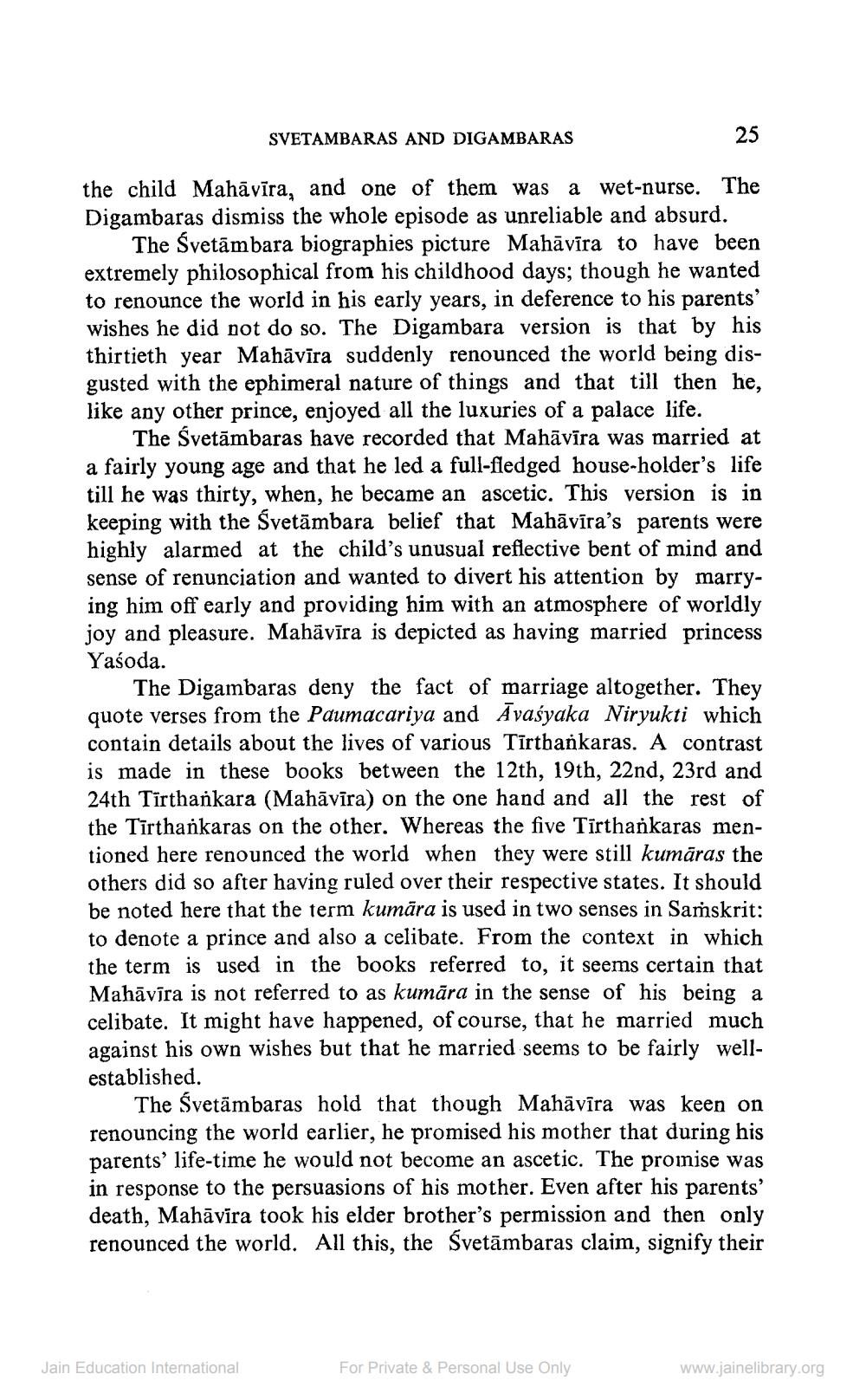________________
SVETAMBARAS AND DIGAMBARAS
the child Mahāvīra, and one of them was a wet-nurse. The Digambaras dismiss the whole episode as unreliable and absurd.
The Svetambara biographies picture Mahāvīra to have been extremely philosophical from his childhood days; though he wanted to renounce the world in his early years, in deference to his parents' wishes he did not do so. The Digambara version is that by his thirtieth year Mahāvīra suddenly renounced the world being disgusted with the ephimeral nature of things and that till then he, like any other prince, enjoyed all the luxuries of a palace life.
The Svetambaras have recorded that Mahāvīra was married at a fairly young age and that he led a full-fledged house-holder's life till he was thirty, when, he became an ascetic. This version is in keeping with the Svetambara belief that Mahavira's parents were highly alarmed at the child's unusual reflective bent of mind and sense of renunciation and wanted to divert his attention by marrying him off early and providing him with an atmosphere of worldly joy and pleasure. Mahāvīra is depicted as having married princess Yasoda.
Jain Education International
25
The Digambaras deny the fact of marriage altogether. They quote verses from the Paumacariya and Avasyaka Niryukti which contain details about the lives of various Tīrthankaras. A contrast is made in these books between the 12th, 19th, 22nd, 23rd and 24th Tirthankara (Mahāvīra) on the one hand and all the rest of the Tirthankaras on the other. Whereas the five Tirthankaras mentioned here renounced the world when they were still kumāras the others did so after having ruled over their respective states. It should be noted here that the term kumāra is used in two senses in Samskrit: to denote a prince and also a celibate. From the context in which the term is used in the books referred to, it seems certain that Mahāvīra is not referred to as kumāra in the sense of his being a celibate. It might have happened, of course, that he married much against his own wishes but that he married seems to be fairly wellestablished.
The Svetämbaras hold that though Mahavira was keen on renouncing the world earlier, he promised his mother that during his parents' life-time he would not become an ascetic. The promise was in response to the persuasions of his mother. Even after his parents' death, Mahāvīra took his elder brother's permission and then only renounced the world. All this, the Svetambaras claim, signify their
For Private & Personal Use Only
www.jainelibrary.org




